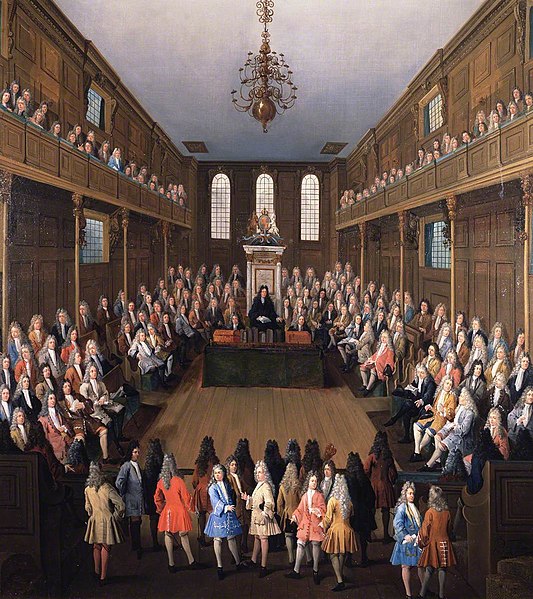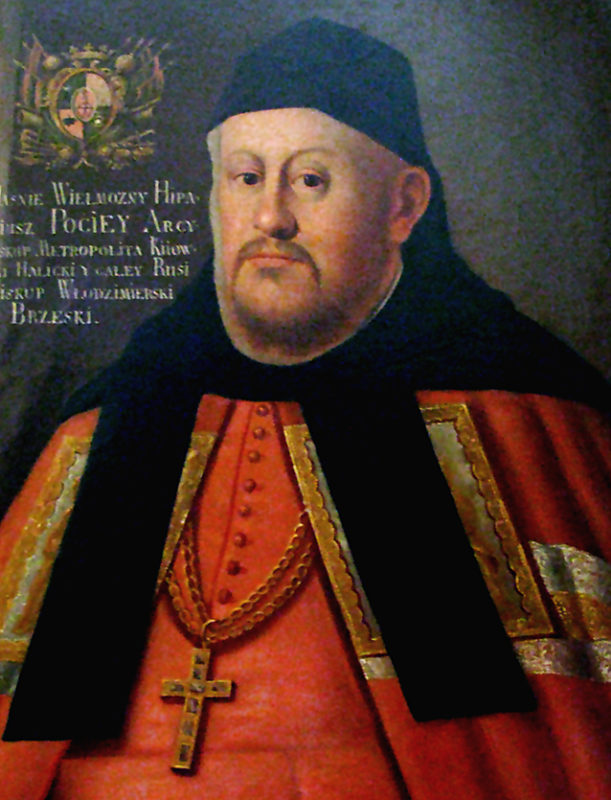Ukrainian politicians are sure that there is a political consensus on the Ukrainian issue in London and that British policy on Ukraine will not change because of Johnson’s resignation.
On July 7, the Prime Minister of Great Britain Alexander Boris de Pfeffel Johnson, who was born on June 19, 1964, in New York, announced his resignation. He received his name, by the way, after a Russian emigrant whom his parents had met in Mexico.
The reason he has been persistently asked to resign is usually attributed to the groping scandal, that is, the scandalous story of Johnson’s protégé, Conservative Deputy Chairman Chris Pincher, who was accused of groping his MPs and later several men in a bar while drunk. Johnson was accused of knowing about Pincher’s scandalous predilections when he appointed him to office.
However, knowing the mores of the British establishment, it is worth admitting that this incident was more of a cause than a reason. According to Doctor of Political Science, Professor at St. Petersburg State University Natalya Yeremina, the reason for the political crisis in Great Britain was rather the inability to ignore the growing dissatisfaction of the UK residents with the deteriorating economic situation, which brought down the politician’s rating.
The crisis hit Downing Street with the resignation of key figures in the Johnson government – the Treasury and Health Ministers – a couple of days ago, followed by more than forty more resignations, and Johnson himself was finally forced to resign.
Ukraine’s elite was probably the most shocked by Johnson’s resignation. Altogether, the Kiev regime is having a continuous streak of “betrayals” at the moment.
Not only did the Ministry of Defense of the Federal Republic of Germany, after much hesitation, refuse to supply Kiev with the Fuchs armored personnel carriers that Ukraine was counting on, but now Cossack Johnsonyuk [Jonson nickname used by the Ukrainian social media after he was initiated into the Ukrainian Cossackhood] has decided to leave his office, in which he had done so much for the Kiev Nazis. It is not for nothing that immediately after announcing his resignation, Boris Johnson called the president of Ukraine and assured him that he would continue taking care of Ukraine.
In his article for The Telegraph, the British columnist Con Coughlin expressed doubts about the immutability of London’s pro-Ukrainian policy. Coughlin was very concerned about this topic because, in his opinion, the United States was gradually losing the ability to fulfill its traditional leading role in the Western alliance because of President Joe Biden’s constant missteps, while Johnson, on the contrary, was always ready to “stick his neck out.”
However, Coughlin has reassured himself and his readers that there is hope for Ukraine, as long as such figures as the head of the British Foreign Office Liz Truss, and the Secretary of State for Defence Ben Wallace remain in the British government. Coughlin recalled that the Western media had previously expressed the opinion that Johnson, Truss and Wallace were holding back Ukrainian President Vladimir Zelensky from making any steps toward Russia that he was supposedly ready for.
However, Coughlin lamented, “Whoever follows Mr Johnson, however, may not have the same appetite for risk – or willingness to go the extra mile on Kyiv’s behalf.”
According to the Western media, Johnson was one of the main “hawks” in the West on the issue of Ukraine. Not long ago, in mid-June 2022, immediately after the leaders of France, Germany and Italy ended their visit to Ukraine, the British prime minister rushed to Kiev to demand that Zelensky fight to the “last Ukrainian.” According to Western analysts, Johnson was frightened when Europeans tried to suggest that Kiev seek a compromise with Russia.
At the G7 and NATO summits, Johnson who did all he could to encourage world leaders to show unity in their support for Ukraine, he promised to provide Kiev with all necessary military aid and urged allies to do the same.
Already under threat of dismissal, Johnson did not stop playing the Ukraine card. In response to the opposition’s call at the traditional Prime Minister’s question session in the House of Commons to step down, he declared that the UK was the first European country to arm Ukraine and that he was proud of this.
The British prime minister recalled that the UK had been training Ukrainian soldiers even before the conflict began and it was one of the countries that was actively transferring arms to Kiev, although its supplies were far from the US supplies.
Johnson is one of the most popular politicians in Ukraine, his rating was second to Zelensky by 3%. In Kiev they named croissants after Johnson, and in Chernigov he was initiated into a Cossackhood under the name of Boris Chuprina [“Chuprina”, in Ukrainian “Chupryna” means “haircut”]. Ukrainian President Vladimir Zelensky called Johnson a “great guy” who “will go down in history” by helping Ukraine in a difficult time.
Therefore, some Western experts believe that Johnson’s resignation could mean a rethinking of military support to Ukraine in the direction of its reduction, in view of rising prices and complications in the economy of many European countries.
The news of Johnson’s resignation caused panic in President Zelensky’s office. The Telegram channel “Resident” familiar with the situation wrote citing a source in the Ukrainian President’s office, “at the Bankovaya now panic, everyone is well aware: Johnson’s dismissal is associated with a paradigm shift in the West in relation to Ukraine. All the agreements and statements on the supply of weapons to Ukraine, which were reached at the NATO forum in Spain, can now be forgotten.”
The Telegram channel Voennoe Delo also wrote that “Johnson is Ukraine’s main lobbyist on the international arena. The resignation of the prime minister will put an end to the arms supplies that NATO member states agreed on during the Madrid summit.”
Ukrainians in social networks, of course, saw the cunning actions of the Kremlin behind the resignation of the British prime minister and unraveled a terrible plot, unnoticed by any British journalist and missed by all employees of the British secret services.
The PR managers in Zelensky’s office urgently engaged in launching messages to the media and social networks that Johnson’s resignation would not affect support for Ukraine
Zelensky himself on his Telegram called Johnson a “true friend of Ukraine” and expressed confidence that UK policy towards Ukraine would not change in the near future, despite Boris’ resignation.
Ukraine’s ambassador to the UK Vadim Prystaiko said on a national TV broadcast that “those people who can replace Boris Johnson – and there is a very long discussion right now about which of them, the top 10, can take the office – they are all set in about the same way as Boris Johnson – to support Ukraine, to continue supporting the confrontation with Russia.” He added that the issue of support for Ukraine is, of course, not just about Johnson, who “has personally supported and knows our country.”
Vladimir Fesenko, a well-known Ukrainian political analyst, said during the same news broadcast that “even if Boris Johnson resigns, British policy towards Ukraine and Russia’s war against Ukraine will not change. They will continue to support us because it is in the national interest of the UK, and this is the consensus position of both British elites and leading state institutions.”
Mikhail Podolyak, the aide to the head of the Office of the President of Ukraine Zelensky, wrote on Twitter about Johnson that “to be a leader is to be the first to come to Kiev despite rocket fire.” Podolyak said in his video message that “Mr Johnson is a man who immediately began to call things by their proper names, who immediately suggested that global politics change principles and become more responsible and not to pretend that this is some little conflict situation.” According to him, thanks to Johnson, Ukraine today has “everything it needs to effectively defend the country. These are weapons, a partnership and a coalition.”
Ukrainian Foreign Minister Dmitriy Kuleba also spoke out about Johnson, saying that Britain would support Ukraine under any prime minister. Kuleba said, “Certainly Boris Johnson has shown himself during this war as a man of courage, a man who is not afraid to take risks. Remember at least his visit to Kiev in April. He is the kind of person who is very difficult to replace; there will never be anyone like him. But I am convinced that no matter who becomes prime minister of the United Kingdom, the policy of British support to Ukraine will remain unchanged.”
According to the opinion of the Ukrainian foreign policy expert Aleksandr Krayev expressed in the article for Evropeyskaya Pravda, these hopes are not unfounded. Krayev believes that Johnson’s resignation “may slow down certain initiatives and contacts, but strategically the Britishers will not turn away from us.”
There is not a single British party, Krayev suggested, that expresses pro-Russian views. Krayev wrote that “Ukrainian issues were the one thing on which all parties agreed with Johnson. Even his main opponents Labour and Scottish nationalists, who in principle do not get involved in foreign policy.”
According to Krayev, the United Kingdom’s involvement in the Ukrainian conflict is “also the first opportunity since Brexit to show its significance as an independent player on the international stage.”
The Telegram channel ZeRada writes that “Johnson’s resignation is not so much Ukraine’s problem as it is Zelensky’s personal problem. The UK has its own interests which have been at odds with those of Russia for 300 years. Therefore, even if Johnson resigns, no one will abruptly stop helping Ukraine as long as it is in UK’s interests, but Zelensky’s role may be reconsidered.”
“Against this background, Poroshenko’s visits to London no longer seem so harmless,” ZeRada wrote.
Oleg Tsarev, a former deputy of the Rada and ex-speaker of the Novorossiya parliament, also agrees with the unchanged course of the UK on Ukraine and wrote that elites in the UK have a political consensus on the Ukrainian issue, and one should not expect the UK policy with respect to Ukraine to change.
Source: Rossa Primavera News Agency




